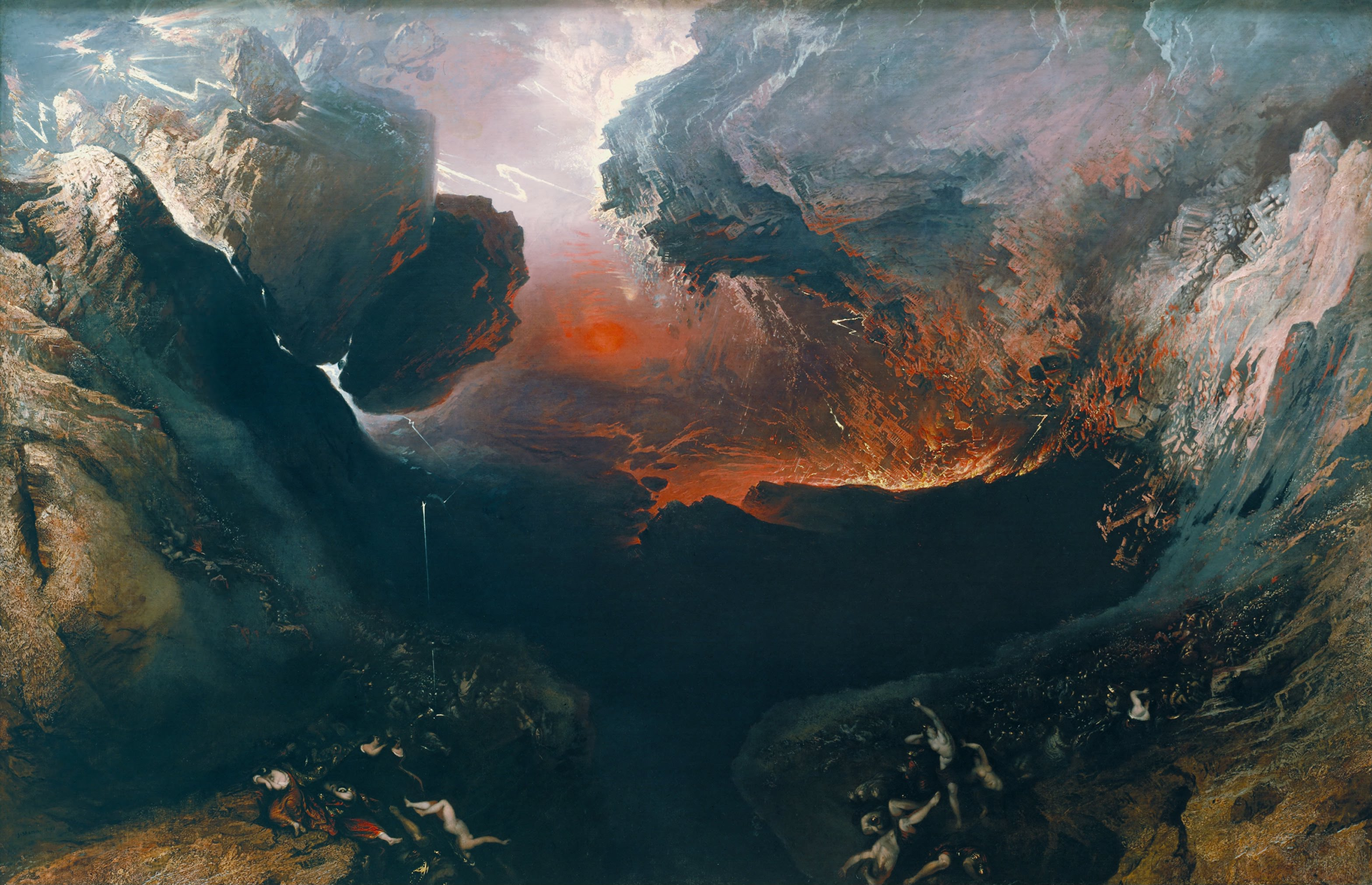
The Day of the Lord
"The Day of the LORD” is a biblical term and theme used in both the Hebrew Bible (יֹום יְהוָה Yom Adonai) and the New Testament (ἡμέρα κυρίου, hēmera Kyriou), as in "The sun shall be turned into darkness, and the moon into blood, before the great and the terrible day of the LORD come" (Joel 2:31, cited in Acts 2:20).
This article is about the eschatological term. For the Christian term for "Sunday", see Lord's Day. For the 2020 film, see The Day of the Lord (film).
In the Hebrew Bible, the meaning of the phrases refers to temporal events such as the invasion of a foreign army, the capture of a city and the suffering that befalls the inhabitants. This appears much in the second chapter of Isaiah which is read on the Sabbath of Vision, immediately before the 10th of Av.
The prophet Malachi foretells the return of Elijah immediately preceding the "great and terrible day of the LORD".[1] This prophecy is read in synagogues on the Great Sabbath immediately preceding Passover.
In the New Testament, the "day of the Lord" may also refer to the writer's own times, or it may refer to predicted events in a later age of earth's history including the final judgment[2] and the World to Come.
The expression may also have an extended meaning in referring to both the first and second comings of Jesus Christ.
Hebrew Bible usage[edit]
It is used first by Isaiah and subsequently incorporated into prophetic and apocalyptic texts of the Bible. It relies on military images to describe the Lord as a "divine warrior" who will conquer his enemies. In certain prophetic texts of the Hebrew Bible, the enemies of the Lord are Israel's enemies, and in these visions the day of the Lord brings victory for the people of ancient Israel. Other prophets use the imagery as a warning to Israel or its leaders and for them, the day of the Lord will mean destruction for the biblical nations of Israel and/or Judah. This concept develops throughout Jewish and Christian Scripture into a day of divine, apocalyptic judgment at the end of the world.[3]
In the biblical canon, the earliest, direct use of the phrase is in Isaiah 2: "For the day of the LORD of hosts shall be upon every one that is proud and lofty, and upon every one that is lifted up; and he shall be brought low" (Isaiah 2:12). Another early use of the phrase is in Amos 5:18-20.[4] Wright suggests that the phrase was already a standard one, and Amos' hearers would take it to mean "the day when Yahweh would intervene to put Israel at the head of the nations, irrespective of Israel's faithfulness to Him."[4] Yet Amos declares "Woe to you who long for the day of the LORD! Why do you long for the day of the LORD? That day will be darkness, not light" (Amos 5:18 NIV). Because Israel had sinned, God would come in judgement on them. Thus, the day of the Lord is about God chastening his people, whether it be through the Babylonian invasion of Jerusalem or a locust plague described in Joel 2:1–11.[4] Yet Joel 2:32 holds a promise that on the Day of the Lord, "everyone who calls on the name of the LORD will be saved."
In Zephaniah 1:8, the Day of the LORD is equated with "the day of the LORD's sacrifice". This has led Christian interpreters to equate it with Jesus' death.[5]
Reference to a specific day as being "The Day of the Lord" is found in the Book of Daniel 12:12, "Blessed is he who waits and comes unto 1,335 days."